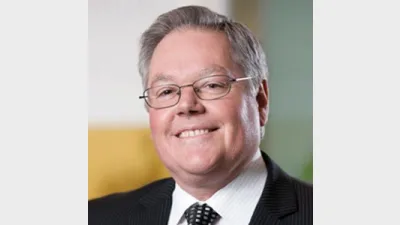FPA backs calls for professional body membership



The Financial Planning Association (FPA) has formally backed calls by parts of the planning industry to require planners to belong to a recognised professional association, citing greater confidence by consumers and regulators and the need to be self-regulated under professional codes of conduct.
The comments from FPA chief executive Mark Rantall follow those of AMP director of financial planning advice and services Steve Helmich, first reported by Money Management last week, that AMP would make association membership mandatory for its planners.
At the time Helmich stated that it would become mandatory for AMP Financial Planning and Hillross planners to become members of one of a number of industry-related professional associations.
Following Helmich's comments, Rantall said today this requirement was part of the broader industry's duty of care to Australian consumers and was a "no-brainer argument".
Rantall said while debate around the issue was welcome, the push to have financial planners regarded as a profession would not stop, since a majority of planners and consumers wanted this to take place.
Rantall added that "our legislators and regulators seek the certainty of dealing with a set of substantive legal, ethical and consumer-centric requirements, which they will either endorse or impose".
"Far better that we don't wait for an imposed set of standards — and move quickly to a self-regulated model where all parties, not least the Australian consumer, have the full confidence of dealing with professionals operating under a robust code of conduct and professional standards," Rantall said.
"The decision to set the bar high by our industry was made two years ago when over 94 per cent of our members who voted, voted to become a profession. Key to this vote was supporting the substance and validity of a code of practice and professional standards."
Rantall stated the shift to sitting under a professional code of conduct as a member of a professional association was a sound economic move, and claimed that licensees with higher numbers of Certified Financial Planners (CFP) benefitted from lower levels of corporate risk and complaints.
According to Rantall, CFPs represent around 30-35 per cent of the financial planning community but experienced less than 2 per cent of enforcement activity by the Australian Securities and Investments Commission.
Recommended for you
Unregistered managed investment scheme operator Chris Marco has been sentenced after being found guilty of 43 fraud charges, receiving the highest sentence imposed by an Australian court regarding an ASIC criminal investigation.
ASIC has cancelled the AFSL of Sydney-based Arrumar Private after it failed to comply with the conditions of its licence.
Two investment advisory research houses have announced a merger to form a combined entity under the name Delta Portfolios.
The top five licensees are demonstrating a “strong recovery” from losses in the first half of the year, and the gap is narrowing between their respective adviser numbers.












